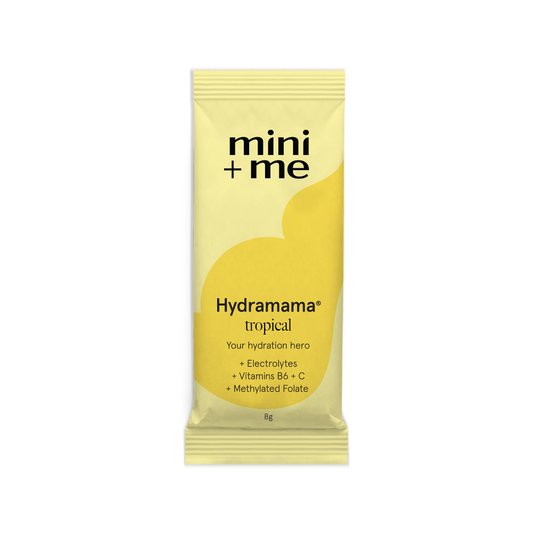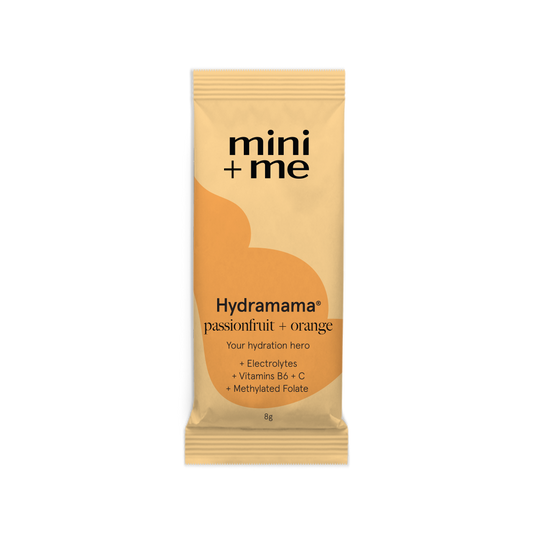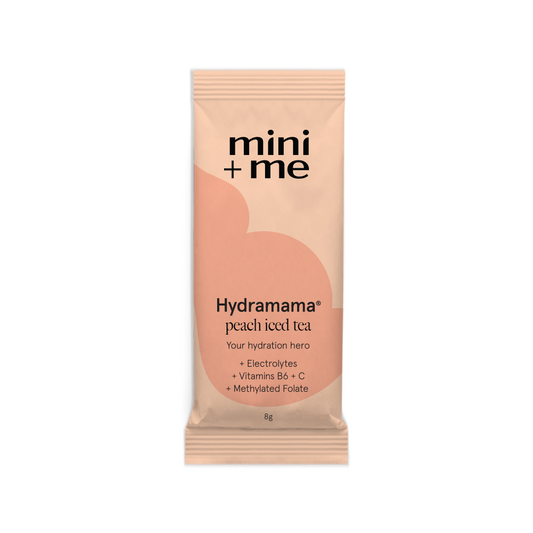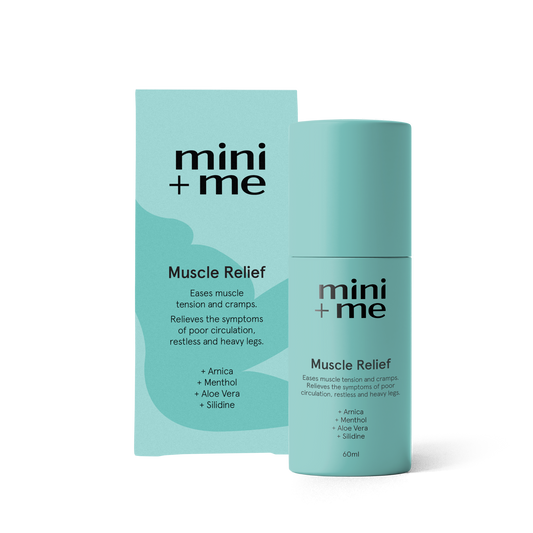When we talk about pregnancy, the phrase "eating for two" often comes up. But what about "drinking for two"? It's not something we usually discuss, yet staying hydrated during pregnancy is crucial. For expecting mama’s, hydration should be a key consideration for a healthy pregnancy, as it plays a vital role especially when it can be common to experience excess fluid loss, due to a growing bub and symptoms like morning sickness.
Pregnancy requires a woman to drink more water than the average person. The current recommendation is 3 litres of water, which definitely exceeds the recommendations for a non-pregnant person. It's not just about quenching your thirst, but ensuring the smooth functioning of your body and the healthy development of your baby. So let's explore why hydration is so critical during this special phase of life.
The Impact of Hydration in Pregnancy
Increased water needs during pregnancy aren't just about keeping the mother hydrated, hydration plays a crucial role in fetal development too. During pregnancy, a major physiological change is the increase in blood volume, with water the main component of human tissue and 83% of blood composed of water, according to BMC Pregnancy Childbirth Journal.
Beyond increase in blood volume, pregnant women can also lose water through sweating more - due to hyperactive adrenal and thyroid functioning, accelerated metabolism and increased circulation.
But remember, hydration is not just about drinking water. The moisture we get from food counts as well, so focusing on consuming water-rich foods like watermelon, celery and tomatoes is a great way to support overall hydration levels. The story of hydration during pregnancy is one of balance, judgment, and diligence. It's not just about eating for two, but drinking for two as well. And, it's about recognising that our choices can impact our own health and the well-being of our baby.
We’ve created a handy list of key tips to keep in mind.
- Reduce caffeine to one cup a day - research suggests 200-300mg at most.
- Up fluids from minimum 9 cups to maximum 16 cups.
- Sip small amounts of water more often - especially if experiencing vomiting and morning sickness.
- Consider a IV drip if unable to hold down fluids - this is especially in the case of those experiencing the more severe form of nausea and vomiting in pregnancy, hyperemesis gravidarum.
- Know your variables - women who exercise often or spend time in heat will need to increase their fluid intake even more to accommodate for this.
- Equal out your electrolyte intake - regularly add a hydration supplement like Hydramama® to your daily water or if unwell, add it to every cup of fluids thereafter. The four delicious flavours may help make sipping water that much more manageable.
Managing Pregnancy Symptoms
Proper hydration can notably support common pregnancy ailments.
Constipation
Constipation is a common pregnancy symptom. Many factors such as hormonal fluctuations, dietary changes, iron-rich prenatal vitamins and reduced physical activity all contribute to this uncomfortable condition. Staying well hydrated can help to relieve this pregnancy symptom.
Swelling and Water Retention
Have you ever noticed how common it is to see swelling in the legs, feet, and fingers during pregnancy? This is the body’s tactic of retaining and producing more water and blood to prepare for labour. It’s a natural response.
Though it may seem paradoxical, staying hydrated can be instrumental in controlling swelling. By consistently replenishing fluids, the body becomes less likely to retain excess water. Consider it your personal check and balance system.
The Role of Hydration in Common Pregnancy-Related Conditions
Hydration can play a key role in minimising the risk or severity of some conditions women experience during pregnancy. Here we examine how hydration can play a role in managing gestational diabetes and preterm labour.
Gestational Diabetes
Gestational Diabetes Mellitus (GDM) is a condition that emerges during pregnancy, where the blood glucose level is higher than the normal threshold. According to the Committee on Obstetric Practice's recommendations, GDM is diagnosed if two or more thresholds are met or exceeded during the Glucose Tolerance Test. The threshold for fasting blood glucose for pregnant women is currently:
|
Threshold Description |
Blood Glucose Level |
|
Fasting Blood Glucose |
Less than 5.3 mmol/L |
|
Blood Glucose of 1 hour |
Less than 10.0 mmol/L |
|
Blood Glucose of 2 hours |
Less than 8.6 mmol/L |
|
Blood Glucose of 3 hours |
Less than 7.8 mmol/L |
Once diagnosed, keeping well hydrated (sipping water with and after mealtimes) can help pregnant women to lower blood glucose levels and aid the breakdown of glucose in the body.
Also note that Hydramama is sugar free! So it is a great option for women diagnosed with GDM. It can be super boring just drinking water all the time. It’s super delicious too!
Promoting Overall Maternal Health
It's clear that hydration plays a vital role in pregnancy. Not only can it manage common issues like constipation and swelling, but it also promotes overall maternal health. Water is a key component of a healthy pregnancy diet, helping to transport essential nutrients to your growing baby.
While it's easy to overlook the importance of hydration (it's just water, right?), it's essential to remember that your body needs more fluids in this period than ever before. So, as you navigate this exciting and life-changing journey, make sure to keep a water bottle handy at all times. Here's to a happy, hydrated pregnancy mama. It’s time to fill your cup with a refreshing and hydrating Hydramama drink.
Cart is Empty
Your Cart is Empty
- Choosing a selection results in a full page refresh.
- Opens in a new window.













